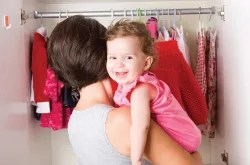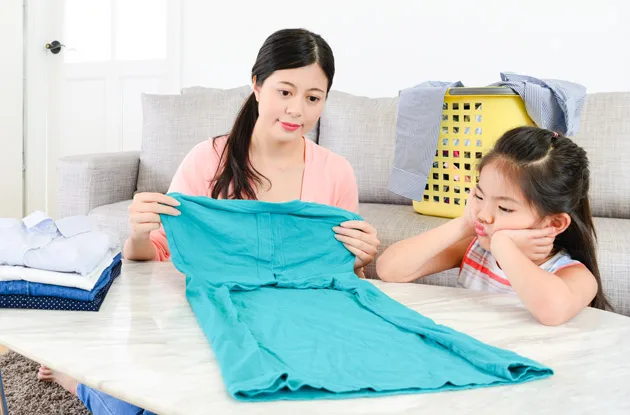Shake off the winter dust and you’ll be happier and less stressed, too. Dr. Susan Bartell shares three simple spring cleaning tips that will help you reduce your stress level while also showing your kids the benefits of being organized.
For many of us, spring and “cleaning” go together. The change of seasons compels us to open the windows, shake off the winter dust, and pull our warm-weather clothing from storage. While you may enjoy the spring-cleaning ritual, you probably didn’t know that it is actually good for you. It is also healthy for your child to take stock once or twice a year. Below are three simple spring-cleaning tasks that will not only make your physical space look better, but will reduce your stress and increase emotional well-being.
1. Reduce clutter.
Your first goal is to reduce disorder. Eliminate piles of papers, clear tabletops and counters, and donate or throw away unneeded items that have collected around your home. This will help you become more productive and waste less time because you won’t have to always search through the disarray for needed items.
Living in an un-cluttered environment is less stressful for your whole family, so spend time de-cluttering your child’s space. If your child is old enough to help, even better. Throw out broken toys and games, and sort through papers and projects that have collected in your child’s room or play space. Determine which should remain and which can be discraded or stored. It is much easier for kids to be creative, to play, and to accomplish schoolwork in an area that is free of clutter, so make this a priority.
2. Create order.
Your second task is to create organization in the important areas of your home. Some people are good organizers, others aren’t. If this is not your strength, ask a friend or family member to help you. Begin with drawers, cupboards, shelves, and closets that are used regularly. If this feels overwhelming, set a realistic goal (for example: “I will re-organize one closet/drawer a week”). Make sure you put your child’s drawers and closet near the top of this list. When your child knows that creating order is important to you, she will be more likely to become organized too. This is especially important if your child struggles with organization in school or at home.
3. Shop your closet.
Finally, the change of seasons is the perfect time to assess your clothing. If you have items in your closet that have not been worn for two or more seasons, give them away—it is unlikely that you will wear them again. Not only will this de-clutter your closet, but it is not healthy for your body image to keep clothes that you hope to eventually wear or that used to fit you. Wear what fits you now and looks great! Holding onto clothing will not give you the incentive to diet or exercise; in fact, it is likely to be demoralizing. If giving away clothing makes you feel guilty, give it to a person or organization that will benefit from your donation. You might even offer it to a consignment shop. Sort through your child’s clothing for items that are too small. Some children become attached to clothes, so if your child doesn’t want to give some things away, offer to store them in a box labeled with his name. This usually eases the transition, and helps you accomplish your goal.
Remember, spring cleaning is about much more than tidying up. It can improve your mood and body image while reducing your stress. Happy spring!
Dr. Susan Bartell is a Long Island-based, nationally recognized child psychologist, speaker, and award-winning author. Her latest book is “The Top 50 Questions Kids Ask.” You can learn more about Dr. Bartell at drsusanbartell.com.





















